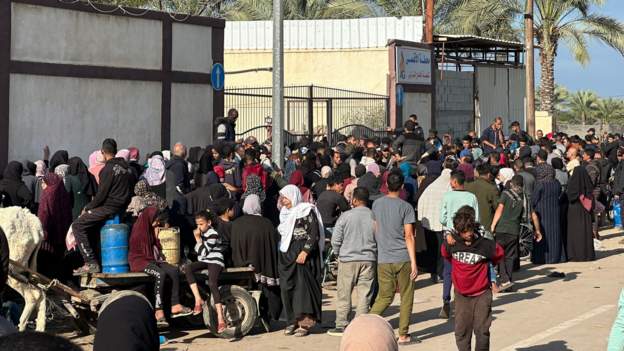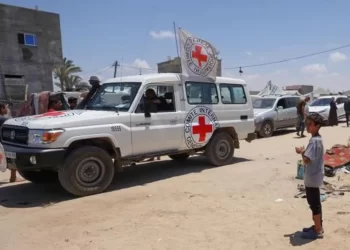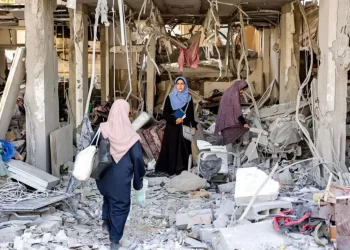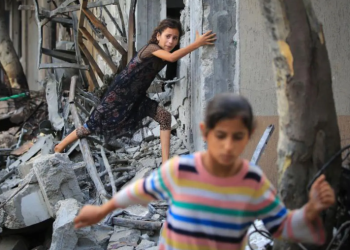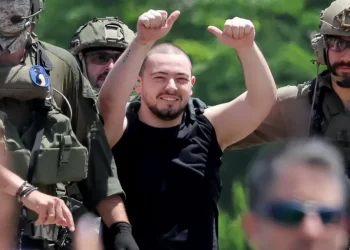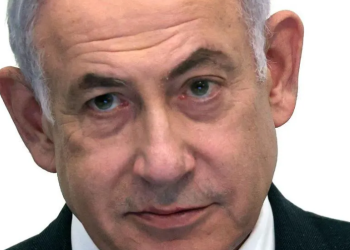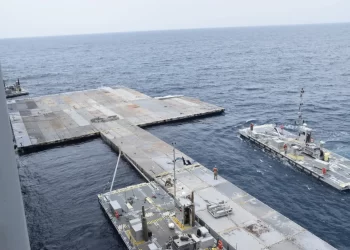In Deir al-Balah, central Gaza, there are people as far as the eye can see. It’s supposed to be a “safe” city compared with the devastated north, its population bursting with the displaced.
Hundreds are in the queue for cooking gas and some people say they have been waiting here three days, sleeping on the side of the street in the cold, in the hope of being able to cook something hot.
As the hundreds wait, some sitting on their gas cylinders, tempers fray.
“Where are all Arabs and Muslims?” a middle-aged woman shouts angrily as she waits in line for gas. “Where are all the defenders of human rights? You’ve left the Palestinian people to suffer, go hungry and be destroyed.”
Desperation and frustration are visible in her face, despair lurking in the background. “We’ve been waiting in line to fill one gas cylinder since early morning,” she says. “I performed my morning prayers while standing.”
She tells me she was displaced from Beit Hanoun in the north, just 2km (1.2 miles) from the boundary with Israel. She’s now living with her family in a UN school in Deir al-Balah.
“I can’t describe the destruction,” she says. “Entire families have been erased from civil records. They were killed under their houses. Gaza has been completely destroyed. Have mercy on us.”






